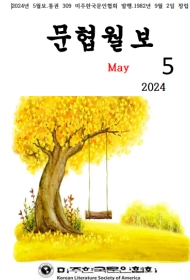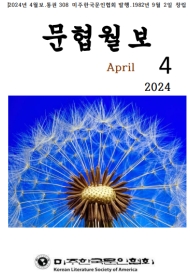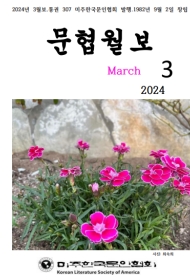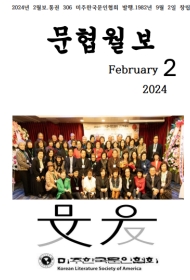The Analects
=============
Wolran Kim
December 2012
Confucius (c.551-c.479 B.C.E.) was a Chinese teacher, editor, politician, and philosopher of the Spring and Autumn Period of Chinese history. His philosophy emphasized personal and governmental morality, correctness of social relationships, justice, and sincerity. His followers competed with many other schools during the Hundred Schools of Thought era only to be suppressed in favor of the Legalists during the Qin Dynasty. Following the victory of Han over Chu after the collapse of Qin, Confucius's thoughts received official sanction and were further developed into the system known as Confucianism. Confucius is traditionally credited with having authored or edited many of the Chinese classic texts including all of the Five Classics, but modern scholars are cautious of attributing specific assertions to Confucius himself.
Aphorisms concerning his teachings were compiled in the Analects, but only many years after his death. Confucius's principles have a strong basis in common Chinese tradition and belief. He championed strong family loyalty, ancestor worship, respect of elders by their children (and in traditional interpretations) of husbands by their wives. He also recommended family as a basis for an ideal government. He espoused the well-known principle "Do not do to others what you do not want done to yourself," an early version of the Golden Rule.
Analects are selections from or parts of a literary work or group of work, and are often used as a title. The Analects, or Lunyu (simplified Chinese: 论语 traditional Chinese: 論語 pinyin: Lún Yǔ literally "Selected Sayings"), also known as the Analects of Confucius, is the collection of sayings and ideas attributed to the Chinese philosopher Confucius and his contemporaries, traditionally believed to have been written by Confucius' followers. It is believed to have been written during the Warring States period (475 BC - 221 BC), and it achieved its final form during the mid-Han dynasty (206 BC-220 AD).
By the early Han dynasty the Analects was considered merely a "commentary" on the Five Classics, but the status of the Analects grew to be one of the central texts of Confucianism by the end of that dynasty. During the late Song dynasty (960-1279) the importance of the Analects as a work of philosophy was raised above that of the older Five Classics, and it was recognized as one of the "Four Books." The Analects has been one of the most widely read and studied books in China for the last 2,000 years, and continues to have a substantial influence on Chinese and East Asian thought and values today.
The vast majority of scholars specializing in the study of the Analects believe that the text was written and compiled within a century after Confucius' death (d.473 BC), mainly by Confucius' first- and second- generation pupils. According to this traditional account, the work would have been written and completed sometime during the Warring States period (476 BC-221 BC). Most Analects scholars also believe that, by the early Han dynasty (206 BC-220 AD) the book was widely known and transmitted throughout China in a mostly complete form.
Since no texts dated earlier than about 50 BC have been discovered, and because Analects was not referred to by name in any existing source before the early Han dynasty, some scholars have proposed dates as late as 140 BC for the text's compilation. A larger collection of Confucius' teachings existed in the Warring States period than has been preserved directly: 75% of Confucius' sayings cited by his second-generation student, Mencius, do not exist in the received text of the Analects.
During most of the Han period the Analects was not considered one of the principal texts of Confucianism. During the reign of Han Wudi (141-87 BC), when the Chinese government began promoting Confucian studies, only the Five Classics were considered canonical by the government. They were considered Confucian because Confucius was assumed to have partially written, edited, and/or transmitted them. The Analects, during Han Wudi's reign, was considered secondary because it was considered only a collection of Confucius' oral "commentary" (zhuan) on the Five Classics.
The intended audience might have been the 3,000 followers of Confucius in a narrow view, and also the populace who could read in those days. The Analects of Confucius has 480 sentences and about 200 of them are perceived as the unchanging truth even now. This book contains timeless wisdom and thought which are practically applied to human society and is still being reproduced in a variety of ways. These analects became one of best classics holding the universal values of humanity beyond the means of personal writing.
Also, concern for Confucius and his The Analects is getting increasingly hotter along with China’s world superpower, which recognized this book as the guiding ideology in the country. Confucius’ time, the time of the Spring and Autumn period, was chaotic with the logic of power of the jungle, and the populace was in an exhausted condition from wars and uproars. Confucius thought his mission was love and to teach the poor populace and practice a compassionate heart. Then he became involved in politics rather than concentrating on teaching and writing his books. He preached about governing by virtue to the politicians.
Confucius was born in poverty and grew up lonely because he lost his father when he was three years old. His family went to ruin and they were between Nobles and commoners in social status. His dream world was dominated by courtesy, virtue, and learning. The Analects remind me Apology of Socrates and Politeia by Western Plato because they all discuss the principles of life, education, culture, and politics. Confucius was the oriental Socrates (BC 470-388). There are two kinds of people in the world who read and unread The Analects.
Around B.C. 6-5 century was a period when pioneers, Confucius, Lao Tzu in China, the Buddha in India, the prophets in Israel, and the Greek philosophers, were active. These explorers made a new turning point in the history of civilization from the mythological era of the past. Karl Jaspers, the German philosopher and historian, called this the ‘axis era of human history’ because these pacemakers who were unrelated and far away had achieved a major breakthrough in the spiritual and intellectual.
Confucius, one of four saints in the world, was less dramatic compared with others: Socrates who drank poison despite having enough to live for his beliefs, the Buddha whose own enlightenment was in a state of nirvana and liberation, and Jesus who was the sample of absolute love through bearing the cross for the sins of mankind. However, he was a worthy man, polishing the study for future use.
The Analects starts with learning. Learning was his life itself, and represents the lives of all people even now in the past 2,500 years. Learning improves life and the expiration of life is recognizing a maximum of life. Learning is the device for the acceleration of life, and destiny is the device for braking life. We can drive our lives with these devices because we need systems of both acceleration and braking. Our lives become free of charge without the acceleration and become dangerous without deceleration. People do not lead to action to learn even though we know that learning is necessary in order to have a better life.
Confucius’ life was filled with failure, so this book was written in a relaxed state without any anger after repeated failure rather than in an intuitiveness of genius. On that account, The Analects is profound with deep wisdom and thought beyond era.
This book also intertwines with different perspectives. One Chinese Literature professor in Korea published a book called Country Stay Alive If Confucius Die, and it has been issued in their society. The author was criticized for the group oriented and male-dominated falsehood and hypocrisy of Confucian culture. Country Stay Alive If Confucius Die says that Confucius’ moral is for the political and vested rights rather than the people, and claims new cultural openness.
The author introduces the origin and the distorting process of Confucianism, and emphasizes globalism and limitation of Confucian culture. The expression of killing Confucius was attracting public gaze and this symbolized all kinds of authority and preconceived orders. According to the author’s morality and ideology of Confucius, it is for adults not for kids, for carcasses not for people who are alive, and justifies social inequality.
I agree that some countries that were in the Confucian culture of the East historically for a long time have not deviated from the conservative and irrational thinking in many cases. However, those evils are not the fault of Confucius or Confucianism; it is rather the fault of the political leaders who distorted Confucianism historically. We cannot see any wrong to say the words of Confucius, and The Analects is much more humane and consistent than the Bible which is mysterious and touched by whole divinity.
=============
Wolran Kim
December 2012
Confucius (c.551-c.479 B.C.E.) was a Chinese teacher, editor, politician, and philosopher of the Spring and Autumn Period of Chinese history. His philosophy emphasized personal and governmental morality, correctness of social relationships, justice, and sincerity. His followers competed with many other schools during the Hundred Schools of Thought era only to be suppressed in favor of the Legalists during the Qin Dynasty. Following the victory of Han over Chu after the collapse of Qin, Confucius's thoughts received official sanction and were further developed into the system known as Confucianism. Confucius is traditionally credited with having authored or edited many of the Chinese classic texts including all of the Five Classics, but modern scholars are cautious of attributing specific assertions to Confucius himself.
Aphorisms concerning his teachings were compiled in the Analects, but only many years after his death. Confucius's principles have a strong basis in common Chinese tradition and belief. He championed strong family loyalty, ancestor worship, respect of elders by their children (and in traditional interpretations) of husbands by their wives. He also recommended family as a basis for an ideal government. He espoused the well-known principle "Do not do to others what you do not want done to yourself," an early version of the Golden Rule.
Analects are selections from or parts of a literary work or group of work, and are often used as a title. The Analects, or Lunyu (simplified Chinese: 论语 traditional Chinese: 論語 pinyin: Lún Yǔ literally "Selected Sayings"), also known as the Analects of Confucius, is the collection of sayings and ideas attributed to the Chinese philosopher Confucius and his contemporaries, traditionally believed to have been written by Confucius' followers. It is believed to have been written during the Warring States period (475 BC - 221 BC), and it achieved its final form during the mid-Han dynasty (206 BC-220 AD).
By the early Han dynasty the Analects was considered merely a "commentary" on the Five Classics, but the status of the Analects grew to be one of the central texts of Confucianism by the end of that dynasty. During the late Song dynasty (960-1279) the importance of the Analects as a work of philosophy was raised above that of the older Five Classics, and it was recognized as one of the "Four Books." The Analects has been one of the most widely read and studied books in China for the last 2,000 years, and continues to have a substantial influence on Chinese and East Asian thought and values today.
The vast majority of scholars specializing in the study of the Analects believe that the text was written and compiled within a century after Confucius' death (d.473 BC), mainly by Confucius' first- and second- generation pupils. According to this traditional account, the work would have been written and completed sometime during the Warring States period (476 BC-221 BC). Most Analects scholars also believe that, by the early Han dynasty (206 BC-220 AD) the book was widely known and transmitted throughout China in a mostly complete form.
Since no texts dated earlier than about 50 BC have been discovered, and because Analects was not referred to by name in any existing source before the early Han dynasty, some scholars have proposed dates as late as 140 BC for the text's compilation. A larger collection of Confucius' teachings existed in the Warring States period than has been preserved directly: 75% of Confucius' sayings cited by his second-generation student, Mencius, do not exist in the received text of the Analects.
During most of the Han period the Analects was not considered one of the principal texts of Confucianism. During the reign of Han Wudi (141-87 BC), when the Chinese government began promoting Confucian studies, only the Five Classics were considered canonical by the government. They were considered Confucian because Confucius was assumed to have partially written, edited, and/or transmitted them. The Analects, during Han Wudi's reign, was considered secondary because it was considered only a collection of Confucius' oral "commentary" (zhuan) on the Five Classics.
The intended audience might have been the 3,000 followers of Confucius in a narrow view, and also the populace who could read in those days. The Analects of Confucius has 480 sentences and about 200 of them are perceived as the unchanging truth even now. This book contains timeless wisdom and thought which are practically applied to human society and is still being reproduced in a variety of ways. These analects became one of best classics holding the universal values of humanity beyond the means of personal writing.
Also, concern for Confucius and his The Analects is getting increasingly hotter along with China’s world superpower, which recognized this book as the guiding ideology in the country. Confucius’ time, the time of the Spring and Autumn period, was chaotic with the logic of power of the jungle, and the populace was in an exhausted condition from wars and uproars. Confucius thought his mission was love and to teach the poor populace and practice a compassionate heart. Then he became involved in politics rather than concentrating on teaching and writing his books. He preached about governing by virtue to the politicians.
Confucius was born in poverty and grew up lonely because he lost his father when he was three years old. His family went to ruin and they were between Nobles and commoners in social status. His dream world was dominated by courtesy, virtue, and learning. The Analects remind me Apology of Socrates and Politeia by Western Plato because they all discuss the principles of life, education, culture, and politics. Confucius was the oriental Socrates (BC 470-388). There are two kinds of people in the world who read and unread The Analects.
Around B.C. 6-5 century was a period when pioneers, Confucius, Lao Tzu in China, the Buddha in India, the prophets in Israel, and the Greek philosophers, were active. These explorers made a new turning point in the history of civilization from the mythological era of the past. Karl Jaspers, the German philosopher and historian, called this the ‘axis era of human history’ because these pacemakers who were unrelated and far away had achieved a major breakthrough in the spiritual and intellectual.
Confucius, one of four saints in the world, was less dramatic compared with others: Socrates who drank poison despite having enough to live for his beliefs, the Buddha whose own enlightenment was in a state of nirvana and liberation, and Jesus who was the sample of absolute love through bearing the cross for the sins of mankind. However, he was a worthy man, polishing the study for future use.
The Analects starts with learning. Learning was his life itself, and represents the lives of all people even now in the past 2,500 years. Learning improves life and the expiration of life is recognizing a maximum of life. Learning is the device for the acceleration of life, and destiny is the device for braking life. We can drive our lives with these devices because we need systems of both acceleration and braking. Our lives become free of charge without the acceleration and become dangerous without deceleration. People do not lead to action to learn even though we know that learning is necessary in order to have a better life.
Confucius’ life was filled with failure, so this book was written in a relaxed state without any anger after repeated failure rather than in an intuitiveness of genius. On that account, The Analects is profound with deep wisdom and thought beyond era.
This book also intertwines with different perspectives. One Chinese Literature professor in Korea published a book called Country Stay Alive If Confucius Die, and it has been issued in their society. The author was criticized for the group oriented and male-dominated falsehood and hypocrisy of Confucian culture. Country Stay Alive If Confucius Die says that Confucius’ moral is for the political and vested rights rather than the people, and claims new cultural openness.
The author introduces the origin and the distorting process of Confucianism, and emphasizes globalism and limitation of Confucian culture. The expression of killing Confucius was attracting public gaze and this symbolized all kinds of authority and preconceived orders. According to the author’s morality and ideology of Confucius, it is for adults not for kids, for carcasses not for people who are alive, and justifies social inequality.
I agree that some countries that were in the Confucian culture of the East historically for a long time have not deviated from the conservative and irrational thinking in many cases. However, those evils are not the fault of Confucius or Confucianism; it is rather the fault of the political leaders who distorted Confucianism historically. We cannot see any wrong to say the words of Confucius, and The Analects is much more humane and consistent than the Bible which is mysterious and touched by whole divinity.













